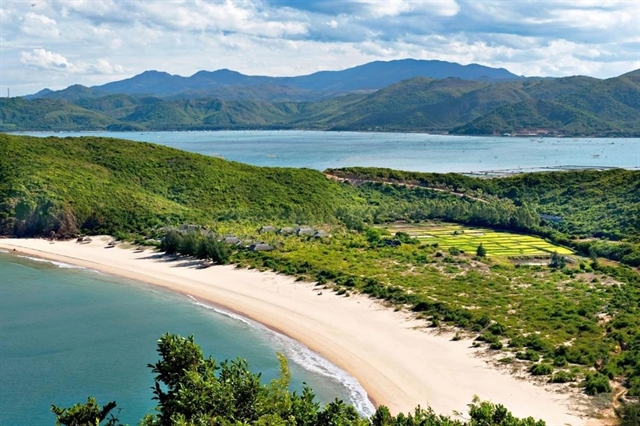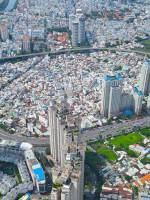
Việt Nam is actively embracing sustainable tourism, recognising it not merely as a trend but as a holistic development strategy
According to the 10th annual report from Booking.com, 96 per cent of Vietnamese travellers consider sustainable tourism important, and 99 per cent wish to have more options aligned with that value.
Notably, 79 per cent of respondents want their spending to go back into supporting local communities.
This marks a clear shift from a mindset of “personal enjoyment” to one of “positive impact”.
Sustainable tourism behaviour now goes beyond environmental protection, expanding into cultural and socio-economic dimensions.
Travellers are increasingly choosing eco-certified accommodations, engaging in local traditions, avoiding over-touristed spots, or adjusting itineraries to reduce ecological pressure.
This shift is not unique to Việt Nam.
A GSTC–Traveloka survey across nine Southeast Asian countries found that over 80 per cent of respondents are willing to travel sustainably if provided with sufficient support in terms of information and cost.
Similarly, Agoda reports that 68-77 per cent of Asian travelers prioritise sustainability when planning trips.
In 2025, Trip.com took a strategic step by expanding partnerships with Sun World Holding in Việt Nam and DreamUs International Holdings in Singapore, two entertainment ecosystem operators rooted in local culture and family values.
The goal is to re-establish tourism value chains, bringing travellers closer to authentic local experiences while ensuring revenue reaches on-the-ground operators.
This is how Trip.com pursues its goal of being “one destination for every need”, but with responsibility, fairness and sustainability at its core.
Both Trip.com and Booking.com emphasise transparency in sustainability certification, local tourism ecosystems and alternative destinations.
This aligns with GSTC–Traveloka’s regional findings, that is when information is easily accessible, travelers tend to behave more responsibly.
In the past, tourism was often built around places, including beaches, mountains, monuments. Today, the focus is shifting to the people who live there.
According to Booking.com, 83 per cent of Vietnamese travellers want destinations to be better after their visit, a desire that goes beyond basic services.
The concept of “community-based tourism” is evolving from a model to a behavioral standard.
Locals are no longer passive hosts, they’re actively shaping experiences, demanding better infrastructure, preserving cultural identity, and sharing in the economic benefits.

Sustainable tourism
According to Reuters, many Asian countries are quickly facing overtourism again post-pandemic.
Places such as Kyoto, Phuket and Bali are struggling with the strain of surging visitor numbers on infrastructure, culture and the environment.
Việt Nam has not reached a crisis point yet, but local traveller concerns are rising.
The Booking.com survey shows that 46 per cent of respondents worry about congestion, another 46 per cent cite littering, and 33 per cent mention rising living costs due to tourism.
Việt Nam is not only a high-potential market, it’s emerging as a regional leader in the sustainable tourism shift.
Data shows Vietnamese travellers are environmentally and socially aware, and willing to adjust behaviours for a greater good. This level of “maturity” is especially significant amid rapid urbanisation and tourism growth.
As citizens, Vietnamese people show a dual perspective: they acknowledge tourism’s economic benefits but also raise concerns about negative effects like waste, overloaded infrastructure, and rising costs.
Instead of backing extreme restrictions, they advocate sustainable solutions like infrastructure upgrades, better waste management and ecosystem protection.
This highlights a crucial alignment between community awareness and consumer behaviour.
On the business front, Trip.com’s choice to expand through partnership with Sun World Holding reflects global confidence in Việt Nam’s sustainable tourism potential.
Destinations like Phú Quốc, Đà Nẵng, and Sa Pa are not just visually appealing, they are progressively embracing culture-centred and socially responsible tourism models.
At the policy level, places like Hội An, Ninh Bình and Đà Lạt are launching eco-tourism initiatives, managing visitor capacity, and empowering local communities in product development.
Challenges remain, but the direction is clear: Việt Nam is not just aligning with global sustainability trends, it’s helping shape them.
From consumer behaviour to business strategy and policy response, the tourism industry is undergoing a comprehensive transformation, not just adapting to new demands, but redefining what tourism means.
Platforms like Booking.com, Trip.com, Traveloka, and Agoda are all contributing to a tourism ecosystem where growth does not conflict with sustainability, and personal experiences are tied to collective responsibility.
As Việt Nam emerges as a regional tourism highlight, the opportunity is not just to “grow fast”, but to grow in the right direction, where every journey makes a positive impact and every destination becomes a shared story between travellers, communities and the planet.
(VNS)




